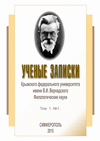The article aims at disclosing and comparing the attitudes towards the pragmatic function of a transmission-final full stop that were elicited from the anonymous responses to a questionnaire issued in two parts: in November – December, 2024 and in February, 2025. The present article adds to the studies by domestic and foreign researchers that have been devoted to the perception of a full stop as reflected in the body of text data obtained in the course of psycholinguistic and sociolinguistic experiments. The novelty of the paper is determined by bringing into clear focus a group of respondents of a wider age range, namely, 15 to 47 years old. The results of the current research confirm the conclusions presented in previous papers by other scholars. In particular, it is confirmed that a transmission-final full stop in group chats is losing its function as a marker of the end of a declarative sentence while gaining new meanings not characteristic of it before, such as formality and seriousness of the conversation, passive aggression, etc. It is also noted that the perception of a full stop as a marker of aggression is an important interpretation, which is not the only one, though, as many respondents aged 15 to 30 regard a transmission-final full stop as a non-obligatory mark, to which the addressee can be fairly indifferent. The leading linguopragmatic functions of this punctuation mark as singled out by the respondents at the age of 15 to 30 are the shutting down of the conversation (according to the literary norm as well), designating the official tone of the conversation and the explication of emotional assessment as well as influence on the addressee’s psychological state. The material on which the article is based, that is, the facts of linguistic reflection and assessments provided by the Russian language speakers, also shows that the rule prescribing that a full stop shall be used at the end of a sentence and reflecting the strict literary norm is considered by many users as a mere recommendation, and a full stop is becoming a non-obligatory punctuation mark.
full stop, chat-communication, punctuation norms, connotations imbued with emotional assessment, dependence on context and discourse.
1. Brileva I. S. «Zhivi kak hochesh', pishi s tochkami!» (o yazyke internet-kommunikacii na materiale «razgovorov» v messendzherah) // Professorskiy zhurnal. Seriya: Russkiy yazyk i literatura. – 2021.
2. Vysockaya I. V. Pravilo nulevoy tochki, ili Kommunikativnyy potencial znaka v cifrovoy punktuacii // Vestnik Novosibirskogo gosudarstvennogo universiteta. Seriya: Istoriya, filologiya.
3. Vysockaya I. V. Tochka v lichnom soobschenii kak znak cifrovogo raskola pokoleniy? (po rezul'tatam anketirovaniya studentov NGU) // Kommunikativnaya kul'tura: istoriya i sovremennost': Mat-ly
4. Grehova E. E. Funkcii tochki v Internet-kommunikacii // Nauka v megapolise Science in a Megapolis. – 2019. – № 2 (10). – S. 3.
5. Ivanova M. V., Klushina N. I. Russkiy yazyk v sovremennom internet-prostranstve: dinamicheskie processy i tendencii razvitiya // Rusistika. – 2021. – T. 19. – № 4. – S. 367–382.
6. Karpuhina V. N. «Novaya sistema» znakov prepinaniya v situaciyah texting / messaging: final'nyy punktuacionnyy znak vyskazyvaniya kak emociogennyy faktor // Chelovek: obraz i suschnost'.
7. Kuznecova N. V. «Pereosmyslenie tochki» kak yavlenie onlayn-kommunikacii // #TOTSBORNIK : sbornik nauchnyh trudov po materialam Total'nogo diktanta. – T. 1. – Novosibirsk:
8. Litnevskaya E. I. Pis'mennye formy russkoy razgovornoy rechi: (k postanovke problemy): monografiya. – M.: MAKS Press, 2011. – 301 s.
9. Mishieva E. M. Diskursivnye markery v molodezhnoy onlayn-kommunikacii (na materiale angliyskogo yazyka): special'nost' 10.02.04: avtoref. dis. … kand. filol.ih n. – M., 2015. – 22 s.
10. Roschupka A. S. Problema vospriyatiya soobscheniy pri ispol'zovanii razlichnyh simvolov i variantov oformleniya teksta v Internet-kommunikacii // Severo-kavkazskiy psihologicheskiy
11. Troshina N. N. Kul'tura yazyka i yazykovaya refleksiya: Analiticheskiy obzor. – M. : Institut nauchnoy informacii po obschestvennym naukam RAN, 2010. – 62 s.
12. Yagodkina M. V. «Agressivnye tochki» v sovremennoy internet-kommunikacii // Art Logos. – 2021. – № 3(16). – S. 55-60.
13. Albritton A. What’s the Point? A Study of Full-Stop Use in Text Messages in Varying Emotional Contexts // Online Journal of Communication and Media Technologies. – 2022. – Vol. 12, no. 1, Article no. e202203.
14. Baron N. Always on: language in an online and mobile world. – Oxford, New York, Oxford University Press, 2008. – 304 p.
15. Crystal D. Txtng: The Gr8 Db8. – Oxford, Oxford University Press, 2008. – 239 p.
16. Gunraj D. N., Drumm-Hewitt A. M., Dashow E. M., Upadhyay S. S. N., Klin C. M. Texting insincerely: The role of the period in text messaging // Computers in Human Behavior. – 2016. – Vol. 55, no. PB.– P.1067
17. Houghton K. J., Upadhyay S., Klin C. M. Punctuation in text messages may convey abruptness. Period. // Computers in Human Behavior. – 2018. – Vol. 80, no. C. – P. 112–121.
18. Ling R., Baron N. Text Messaging and IM Linguistic Comparison of American College Data // Journal of Language and Social Psychology. – 2007. – No. 26(3). – Pp. 291–298.
19. McCulloch G. Because Internet. Understanding the New Rules of Language. – New York, Riverhead Books, 2019. – 326 p.
20. Reynolds K. J., Casarotto B., Noviski S., Roche J. M. Using punctuation as a marker of sincerity and affective convergence during texting // Proceedings of the 39th Annual Conference of the Cognitive





